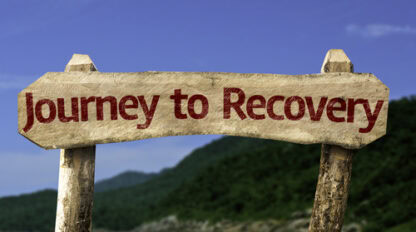Which Substance use Disorders are Most Commonly Co-occurring with Bipolar Disorder?

Although individuals with Bipolar Disorder commonly reach for both alcohol and drugs to cope, drug addiction is the most prevalent form of substance abuse co-occurring with Bipolar Disorder. In order to understand why we must first understand what Bipolar Disorder is and exactly what “co-occurring” means. In understanding the Disorder it will also assist you with understanding why drugs are the common substance used by people with Bipolar Disorder.
Bipolar Disorder is a disorder fraught with extreme mood swings which often makes it difficult for an individual to function. Often those with Bipolar Disorder feel extremely upbeat or on a “natural high” one minute only to come crashing down into depression. This depression downswing causes individuals to grapple with low self-esteem issues and feelings of hopelessness. There are two types of Bipolar Disorder: Bipolar 1 and 2. Bipolar 1 typically has one or more manic episodes every 7 days whereas Bipolar 2 can typically be comprised of a major depressive episode lasting up to 2 weeks. Some individuals are also diagnosed as Cyclothymic.This is a state wherein individuals experience a mix of manic and depressive symptoms on a daily basis lasting up to two weeks. For the individual living with Bipolar Disorder life may feel like being on a roller coaster and it may seem overwhelming at times.
Formerly known as Dual Diagnosis or Dual Disorders Co-Occurring Disorders describe the presence of not just one mental health disorder (such as the Bipolar Disorder) but it is also coupled with a Substance Use Disorder. Living with Bipolar Disorder can be extremely difficult, nerve wracking and those with Bipolar Disorder often reach out to self-medicate thinking that will resolve or at least “ease” the severe mood swings they go through. Of course, this is a misperception and, in fact, using drugs to self-medicate actually worsens or intensifies the state of the Bipolar Disorder. As with either alcohol or drugs, too, individuals develop a tolerance to the levels they use at and ultimately, have to increase the amount of alcohol or drugs to attain the same effect. Drugs, of course, are much quicker reacting which would certainly explain why drugs and not alcohol is the Substance Abuse Disorder co-occurring primarily with Bipolar Disorder.
Let the O’Connor Professional Group take the guesswork out of putting a treatment plan together. Our combined personal and professional experience empowers us to empower you with a private consultation and customized plan of action for getting the help you need. Call us today for information: 617 910-3940

